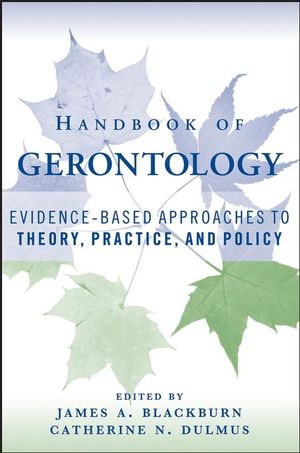

Most ebook files are in PDF format, so you can easily read them using various software such as Foxit Reader or directly on the Google Chrome browser.
Some ebook files are released by publishers in other formats such as .awz, .mobi, .epub, .fb2, etc. You may need to install specific software to read these formats on mobile/PC, such as Calibre.
Please read the tutorial at this link: https://ebookbell.com/faq
We offer FREE conversion to the popular formats you request; however, this may take some time. Therefore, right after payment, please email us, and we will try to provide the service as quickly as possible.
For some exceptional file formats or broken links (if any), please refrain from opening any disputes. Instead, email us first, and we will try to assist within a maximum of 6 hours.
EbookBell Team

4.1
60 reviewsThe Handbook of Gerontology: Evidence-Based Approaches to Theory, Practice, and Policy provides an essential source of important theoretical and applied information on gerontology for all mental health professionals interested in optimizing the health and well-being of older adults. Interdisciplinary and incorporating the most current evidence-based practices in its focus, this timely book considers the many factors that affect the way this growing population experiences the world-and provides a positive and proactive guide to administering care.
Integrating the latest research findings with important practice implications for working with an older client population, the Handbook of Gerontology draws on a multidisciplinary team of expert contributors who provide coverage and insight into a diverse range of topics, including:
An exceptional resource for practitioners, researchers, policymakers, and students, the Handbook of Gerontology is essential reading for anyone who works with older adults.Content:
Chapter 1 Global Aging (pages 1–16): Karen M. Sowers, William S. Rowe and Sue C. Bratton
Chapter 2 Biological Aspects and Theories of Aging (pages 17–56): Laura J. Pankow and Jeffrey M. Solotoroff
Chapter 3 Cognitive and Affective Theories of Adult Development (pages 57–86): Bert Hayslip and Benjamin P. Chapman
Chapter 4 Personality Theories of Successful Aging (pages 87–116): Natalie C. Ebner and Alexandra M. Freund
Chapter 5 Wisdom, Life Longings, and Optimal Development (pages 117–142): Susanne Scheibe, Ute Kunzmann and Paul B. Baltes
Chapter 6 Sociological Approaches to Understanding Age and Aging (pages 143–168): Debra A. Street
Chapter 7 Health Promotion (pages 169–200): Jill Bradshaw and Waldo C. Klein
Chapter 8 Disability (pages 201–229): Elizabeth Lightfoot
Chapter 9 Sleep Disturbances (pages 230–243): Mary Ann Leitz
Chapter 10 Sexuality and Intimacy (pages 244–268): Linda J. Brock and Glen Jennings
Chapter 11 Depression (pages 269–308): Leslie Hasche and Nancy Morrow?Howell
Chapter 12 Substance Abuse (pages 309–332): Noell L. Rowan and Anna C. Faul
Chapter 13 Alzheimer's Disease (pages 333–366): Masahiro Shigeta and Akira Homma
Chapter 14 Grief and Bereavement (pages 367–394): Robert O. Hansson, Bert Hayslip and Margaret S. Stroebe
Chapter 15 Parenting Grandchildren (pages 395–425): Hwa?Ok Hannah Park and Jan Steven Greenberg
Chapter 16 Family Caregiving (pages 426–454): Rhonda J. V. Montgomery, Jeannine M. Rowe and Karl Kosloski
Chapter 17 Community?and Facility?Based Care (pages 455–497): Gretchen E. Alkema, Kathleen H. Wilber and Susan M. Enguidanos
Chapter 18 Elder Abuse (pages 498–518): Patricia Brownell and Gina R. Rosich
Chapter 19 Health Decisions and Directives About the End of Life (pages 519–541): Jay Wolfson and Rebecca Morgan
Chapter 20 Global Challenges for an Aging Population (pages 543–564): Jeanette C. Takamura